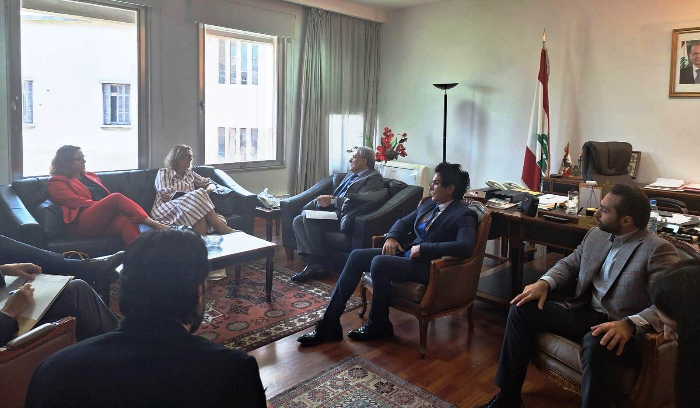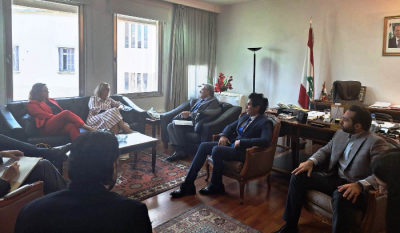The Minister of Justice in the caretaker government, Henry Khoury, mentioned today during a meeting with a delegation from the United Nations Development Programme (UNDP) led by the UN Resident Coordinator in Lebanon, Melani Hounsh, and the EU Ambassador, Sandra Duval, that "our discussions focused on the importance of communication and support aimed at activating judicial work and developing judicial institutions at a time when the Lebanese people are facing the most difficult stages the country is experiencing on all levels: economic, political, financial, monetary, and social. Consequently, these tough conditions reflect on all areas in Lebanon, particularly on the judicial work, which we are trying to address through all available means to restore the normal functioning of courts, benefiting litigants and ensuring their rights."
He thanked the European Union and UNDP for their support in providing judicial buildings with solar energy, including the Justice Palace in Beirut, a project funded by the EU that aims to support the independence and efficiency of the judiciary and secure the rights of those concerned before the Lebanese judiciary. Khoury clarified that he updated both delegations on the Palermo Conference that took place in Italy last week and the speech he delivered there, where he highlighted the seriousness of the increasing wave of Syrian displacement on Lebanon and its repercussions for the European Union countries.
He stated, "During the speech, I spoke frankly and did not hesitate to place the matters in their correct context in this regard. We also addressed Lebanon's official stance aimed at the return of displaced persons to their homeland, as well as the issue of combating human trafficking, which are matters that must be addressed in the home country of the displaced persons and the necessity of improving living conditions in the countries of individuals to minimize the incentives for seeking a better life and income abroad, preventing them from becoming refugees as is the case for Syrian displaced persons in Lebanon, or illegal migrants as seen in Europe, which constitutes the main target for migrants to go to, a situation that Europeans are starting to feel and take into account."
Khoury added, "We focused on urging governmental and non-governmental organizations to support individuals in maintaining their freedom in their home countries and reducing their desire to leave; therefore, financial aid should be invested in their home countries." He further noted, "We also highlighted to both delegations that the financial amounts paid to Syrian displaced families from Syria could be granted to them in their own country, as supporting the displaced persons in their homeland eliminates the need for them to leave."




